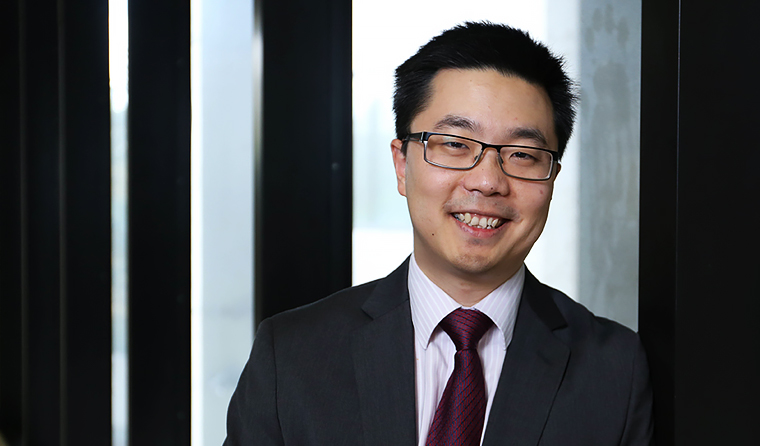News
International cancer survey highlights treatment shortcomings
Diagnosis delays and the management of ongoing side effects were labelled the main causes of inefficiency.
 Half of the survey respondents said they did not receive enough support during and after treatment.
Half of the survey respondents said they did not receive enough support during and after treatment.
While the majority of survey respondents indicated their needs were sufficiently addressed during their care, there was also room for improvement in relation to support and shared decision-making, integrated multidisciplinary care, and the financial impact of treatment.
Dr Joel Rhee, Chair of the RACGP Cancer and Palliative Care Specific Interests network, told newsGP the key message of the study resonates with his understanding of cancer treatment in Australia, but warns it may not be representative of the country as a whole.
The global study included responses from 4000 cancer patients and carers across 13 countries. One quarter of the 850 surveyed were from Western Australia, and 89% were women.
Of the Australians who took part in the survey, 68% had breast cancer, 7% lymphoma and 5% prostate cancer. The remaining 20% had various other cancer types.
‘It’s a highly skewed sample, [but] an important takeaway is the need for GPs to be more involved in people with cancer,’ Dr Rhee said.
Nonetheless, Professor of Surgical Oncology at UWA Professor Christobel Saunders, who led the WA research component, said the survey provides an invaluable insight into what it is like for patients who have been diagnosed with cancer.
‘This survey is so important because it’s pinpointed the areas where we need to improve our care of cancer patients,’ she said.
‘In order to really put the patient at the centre of care, we first need to understand the things that matter most to patients, including their experiences of their disease and treatment, and then improve our services based on this information.’
One in two respondents said they did not receive enough support to deal with ongoing symptoms and side effects, both during and after treatment. Additionally, some felt overwhelmed because too much information was given at once and would have rather received relevant information at appropriate points along the care pathway.

Dr Joel Rhee, Chair of the RACGP Cancer and Palliative Care Specific Interests network, believes greater trust and communication between primary care and specialist services would help treatment shortcomings.
Dr Rhee believes GPs generally support patients ‘really well’ around the time of cancer diagnoses by providing psychological and social care, but said breakdowns can occur once they are referred to a cancer service.
‘Sometimes it’s like a black hole, where the patient gets diagnosed with cancer and then they don’t turn up to primary care for several months,’ he said.
‘The patient then emerges at the end of it either having finished their course of curative treatment, or they couldn’t finish it and have been referred to palliative care services. Something really needs to be done to ensure that GPs are more involved during that phase of the patient’s care.
‘GPs and cancer services people are very busy, so the tricky part is always finding the time to be able to communicate with each other.’
Dr Rhee’s assessment matches patient experiences, as another common finding was respondents feeling there was often a lack of coordination in care – reporting they had no written care plan nor a primary point of contact to whom they could direct questions.
Dr Rhee said more clarity regarding each clinician’s role during the care period would help, as would more faith in the specialised care GPs can provide.
‘Some clinicians form the view that these are very highly-specialised treatments and some GPs are potentially not that familiar with them, so they’re not sure what role GPs can play,’ he said.
‘It does require an element of trust, and building up trust is a critical component.
‘[But] if there were adequate support services available, and good communication, then GPs can be highly effective in managing many of these issues, including some side effects of treatments and patient follow up, etc.’
Another important aspect, according to Dr Rhee, is acknowledging the role that private specialists play – as this can sometimes be overlooked – and then including them in forming appropriate pathways relevant to the local area.
‘Many primary health networks have been designing localised versions of health pathways for managing not only cancer, but other conditions … highly tailored to where you’re practising, rather than a generic pathway that’s not very useful,’ he said.
‘The bulk of [cancer] procedures are done by private specialists. We can pretend that doesn’t happen and cancer services can plan everything around the public system, but the reality is often GPs will tap into the private system because, especially for patients who have private insurance, it’s so much faster and so much more convenient.
‘[But] the last thing we want is people who have the money or access to these type of specialists to get better treatment. That’s why we need we need to get private specialists, public-hospital-based cancer specialists and GPs all involved and communicating to identify every group of patients to make sure no one is disadvantaged.’
cancer integrated care research
newsGP weekly poll
As a GP, would you benefit from further education about identifying and supporting patients impacted by intimate partner violence?